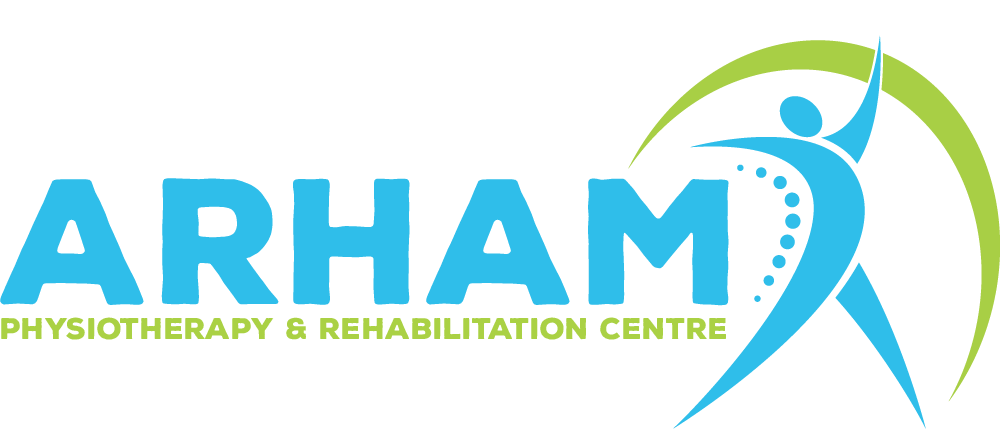Understanding the Benefits of Physiotherapy in Weight loss Management
Introduction
When it comes to weight loss management, physiotherapy is often an overlooked but powerful tool that can make a significant difference. By promoting physical activity, improving overall fitness, and addressing underlying musculoskeletal issues, physiotherapy plays a crucial role in helping individuals achieve their weight loss goals. In this article, we will explore the various benefits of physiotherapy in weight loss management, particularly in the Nikol area. By understanding the role of physiotherapy and its impact on individualized exercise programs, cardiovascular conditioning, strength training, injury prevention and rehabilitation, pain management, postural correction and alignment, motivation and behavior change, functional training, and education on lifestyle modifications, individuals can harness the power of physiotherapy for successful and sustainable weight loss.

Role of Physiotherapy in Weight Loss
Physiotherapy is more than just a treatment for injuries; it can actively contribute to weight loss by promoting physical activity, improving overall fitness, and addressing underlying musculoskeletal issues. Physiotherapists play a crucial role in designing personalized exercise plans that target weight loss goals while considering a person’s fitness level, medical history, and any existing injuries or limitations.
Individualized Exercise Programs
Physiotherapists are experts in assessing a person’s physical condition and designing individualized exercise programs. These programs are tailored to address weight loss goals effectively while taking into account the person’s fitness level, medical history, and any existing injuries or limitations. By focusing on specific exercises that promote fat burning, muscle toning, and overall body transformation, physiotherapists create a roadmap for achieving sustainable weight loss.
Cardiovascular Conditioning
Physiotherapy interventions, such as aerobic exercises, improve cardiovascular health, burn calories, and contribute to weight loss. By incorporating activities like brisk walking, jogging, cycling, or swimming into an individual’s exercise routine, physiotherapists enhance cardiovascular conditioning, leading to improved endurance and increased calorie expenditure.
Strength Training and Muscle Development
Resistance exercises prescribed by physiotherapists help build lean muscle mass, which contributes to a higher metabolic rate and increased calorie expenditure. Physiotherapy programs often include exercises using bodyweight, resistance bands, or weights to target specific muscle groups and promote overall strength development. By building muscle, individuals can effectively burn more calories even at rest, leading to sustainable weight loss.
Injury Prevention and Rehabilitation
Injuries can significantly impede progress in weight loss journeys. Physiotherapy plays a vital role in injury prevention and management by helping individuals address existing injuries, correct movement imbalances, and develop proper techniques to reduce the risk of further injuries during exercise. By incorporating techniques such as stretching, strengthening, and balance training, physiotherapists ensure a safe and injury-free weight loss journey.

Pain Management
Weight-related conditions, such as osteoarthritis or back pain, can cause discomfort and hinder physical activity. Physiotherapy techniques like manual therapy, therapeutic modalities, and specific exercises can help manage pain associated with these conditions, enabling individuals to engage in physical activity more comfortably. By reducing pain, physiotherapy facilitates increased movement and contributes to weight loss efforts.
Postural Correction and Alignment
Physiotherapists assess and correct postural imbalances that can contribute to weight gain and hinder weight loss progress. By addressing issues such as poor posture, muscle imbalances, or limited joint mobility, physiotherapy promotes better body alignment and movement efficiency. This, in turn, enhances exercise performance, prevents injuries, and supports weight loss goals.
Motivation and Behavior Change
Physiotherapists serve as valuable sources of guidance, support, and motivation throughout the weight loss journey. They understand the challenges individuals face and provide strategies to establish healthy habits, set realistic goals, and overcome obstacles. By addressing psychological barriers and fostering behavior change, physiotherapy maximizes the chances of long-term success.

Functional Training
Physiotherapy incorporates functional exercises that mimic daily activities, promoting functional strength, mobility, and endurance. By improving these aspects, individuals enhance their overall physical performance, making everyday tasks easier and more efficient. Functional training also contributes to weight loss by increasing calorie expenditure during activities of daily living.
Education and Lifestyle Modifications
Physiotherapists provide education on nutrition, healthy lifestyle choices, and strategies for long-term weight management. They offer valuable insights into portion control, mindful eating, stress management techniques, and sustainable behavior change. By combining exercise with proper nutrition and lifestyle modifications, physiotherapy creates a holistic approach to weight loss.
Conclusion
Physiotherapy plays a pivotal role in weight loss management by promoting physical activity, improving overall fitness, addressing underlying musculoskeletal issues, and offering guidance on lifestyle modifications. In Nikol, physiotherapists are skilled professionals who can tailor exercise programs, prevent injuries, manage pain, correct posture, provide motivation, and educate individuals on nutrition and healthy habits. By harnessing the benefits of physiotherapy, individuals can embark on a successful weight loss journey that leads to improved overall well-being and long-term weight management.
Also Read: You Are Not Too Old, But Your Bones Need Maintenance
Remember, consulting with qualified physiotherapists who specialize in weight management is essential to unlocking the full potential of physiotherapy in weight loss management. With their expertise and individualized approach, they can guide individuals toward achieving their weight loss goals effectively and sustainably, ensuring a healthier and happier lifestyle.
Frequently Asked Questions
How can physiotherapy contribute to weight loss management?
Physiotherapy promotes physical activity, improves overall fitness, and addresses musculoskeletal issues that can hinder weight loss progress. By designing personalized exercise programs, addressing injuries, and providing pain management, physiotherapy enhances the effectiveness of weight loss efforts.
Can physiotherapy help with cardiovascular conditioning and calorie burning?
Yes, physiotherapy interventions include aerobic exercises that improve cardiovascular health, burn calories, and contribute to weight loss. These exercises increase heart rate, enhance endurance, and boost overall cardiovascular conditioning.
Does physiotherapy focus on strength training for weight loss?
Yes, physiotherapists prescribe resistance exercises to build lean muscle mass, which increases metabolic rate and calorie expenditure. Strength training exercises are incorporated to help individuals develop muscle strength, tone, and overall body composition.

Pingback: The Ultimate Posture and Back Pain Exercise and Stretch Guide
Pingback: How to Choose the Right Knee Pain Physiotherapy Clinic for You
Pingback: Physiotherapy to Maintain Women Health - Arham Physio